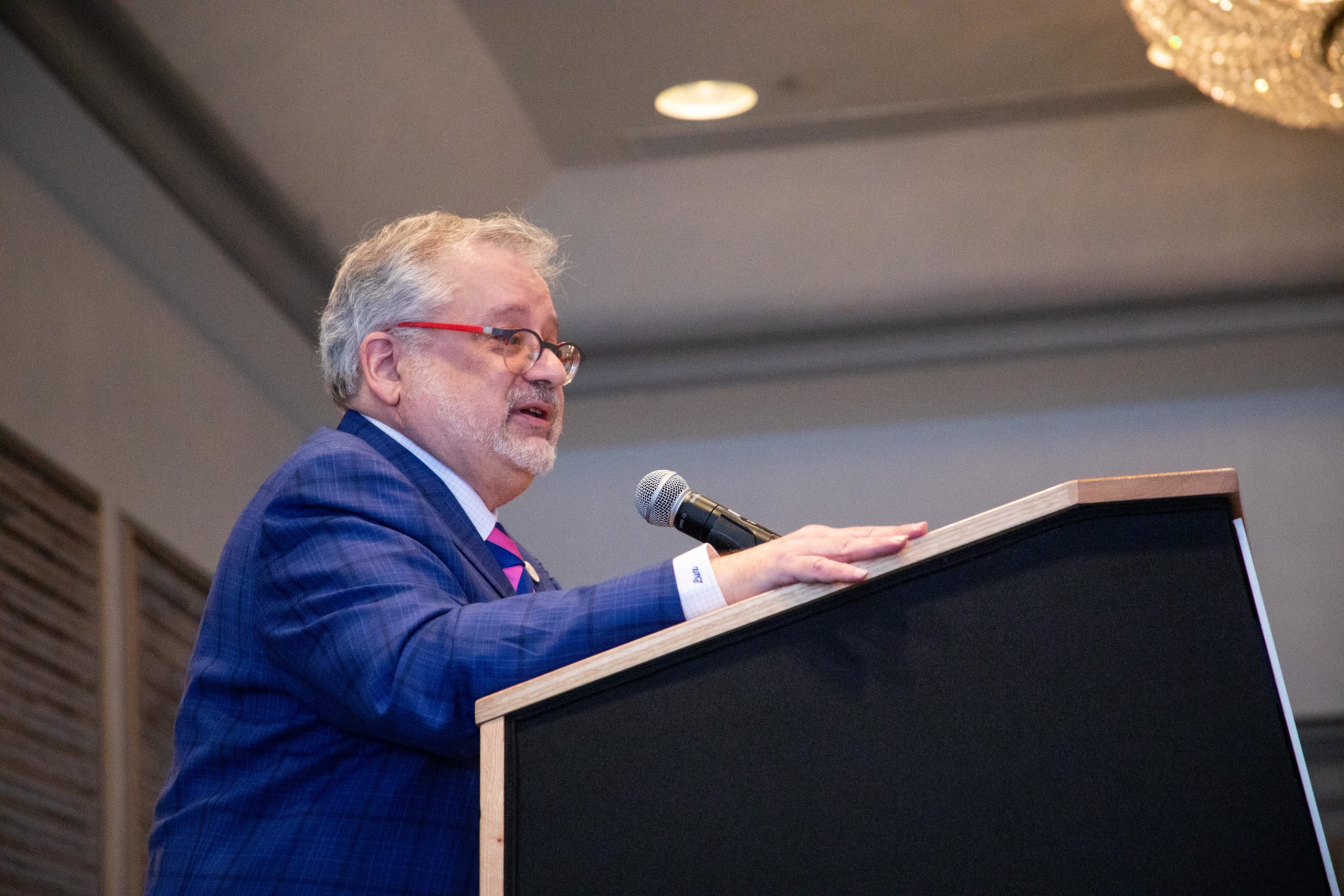A nation must think before it acts.
Brief Reflections on My Time at FPRI
*As delivered at the FPRI Annual Brunch, April 14, 2019*
As most of you know, I will be retiring a year from now, which makes this the last brunch I will preside over.
It will have been 44 years since I started here in what was supposed to be a temporary part-time job not to last more than two weeks. At the time I was a senior at the University of Pennsylvania planning to enter graduate school for a doctorate in psychology.
By April 1976, I had been at FPRI for two months; the then-Associate Director Harvey Sicherman called me into his office and proceeded to give me, apropos of nothing in particular, an hour-long impromptu but very erudite and entertaining lecture on the Jewish holiday of Passover. I knew then that this was a very unusual place.
Harvey left FPRI in 1981 to serve as special assistant to secretary of state Alexander Haig, then as consultant to secretary of state George Shultz, and then in the policy planning office of secretary of state James Baker. If Dean Acheson was present at the creation of the postwar world, Harvey was present at the creation of the post-Cold War world. He arrived back at FPRI in 1993, where he presided until his untimely death in December 2010.
When he became president of FPRI, Harvey elevated me to the post of Vice President, and I became acting president upon his passing. Not for a moment did I ever aspire to be President of FPRI — until about 8 months into my term as acting president; only then did it first occur to me that I might be able to do this job.
We’ve accomplished some important goals these past nine years:
First, we put our financial house in order and expanded our base of donors.
Second, we vastly expanded our roster of affiliated scholars, now numbering 137.
Third, we truly opened up the Institute to diverse points of view. There is of course a common thread among our scholars and that is their commitment to protecting the national security interests of the United States of America; how to do that, of course, is subject to honest debate and that is what we are all about. The other common thread is a commitment to the highest standards of scholarship and to the dispassionate pursuit of truth. Even in these times, when passions on all sides have risen to new heights, we strive to keep it low key and civil.
Fourth, we elevated our public profile; so, you can now find our scholars in the pages of Foreign Affairs, Foreign Policy, the NY Times, the Washington Post, the Wall Street Journal, the Atlantic, and elsewhere, and one of our fellows has appeared on MSNBC week after week for the past 2 years. In other words, we are in the thick of the public discourse. And that’s in addition, for example, to the one million words we published ourselves in 2018 – the product of our 5 major research programs, two of which were created in the last 10 years.
Also relevant to our public profile is the fact that we expanded our regular programming venues to include not only Philadelphia but Haverford, Princeton, NYC, Miami, Wilmington, and Washington DC as well. And we developed a significant presence on the web and social media, including Instagram, which I’ve heard of but have no idea how it works.
Fifth, we developed partnerships with numerous groups in this community – the National Liberty Museum, the Museum of the American Revolution, the Haverford School, the Satell Institute for Corporate Social Responsibility, the World Affairs Council of Philadelphia, Eisenhower Exchange, the Lepage Center for History in the Public Interest at Villanova University, the Center for the Study of Force and Diplomacy at Temple University, and numerous centers at the University of Pennsylvania, as well as partnerships with organizations in NY and Washington, too numerous to mention. We helped found two consortiums – the Global Philadelphia Association and one that doesn’t yet have a name but is a consortium of organizations devoted to civic education.
Sixth, building on nearly 30 years of providing professional development for high school teachers in American history and international relations, we have begun to develop products and services for high school students – namely, our historical simulations and our video primers. But right now, as we speak, we are working to create something hugely significant: using historiography – that is, the comparison of alternative interpretations of historical events – we hope to teach critical thinking skills at the high school level. This will help students from impoverished environments attain the same life skills as their more privileged peers, it will greatly improve college readiness, and it will help all students to become better citizens. This is the brainchild of our Novakovic Fellow Aya Marczyk.
This project of Aya’s is of personal significance to me, for I devoted much of my career here to building our educational programs, and I can’t think of a better way to end my term in office than to have helped plant the seed for an outstanding new program that builds creatively on my earlier efforts.
So, this is what we accomplished, or, in the case of the last item, what we hope to accomplish.
When I say “we” accomplished, I don’t mean the royal we. I actually mean you – everyone in this room — our staff, our scholars, our trustees, and our donors. You have devoted yourselves to building this institution. Without you, nothing worthwhile would have been achieved.
I thank all of you for making FPRI the dynamic institution it has become, and I hope all of you will continue to support the organization long after I’m gone from the scene – because basically it’s a great organization, and its greatness is not dependent on whoever happens to be president.




